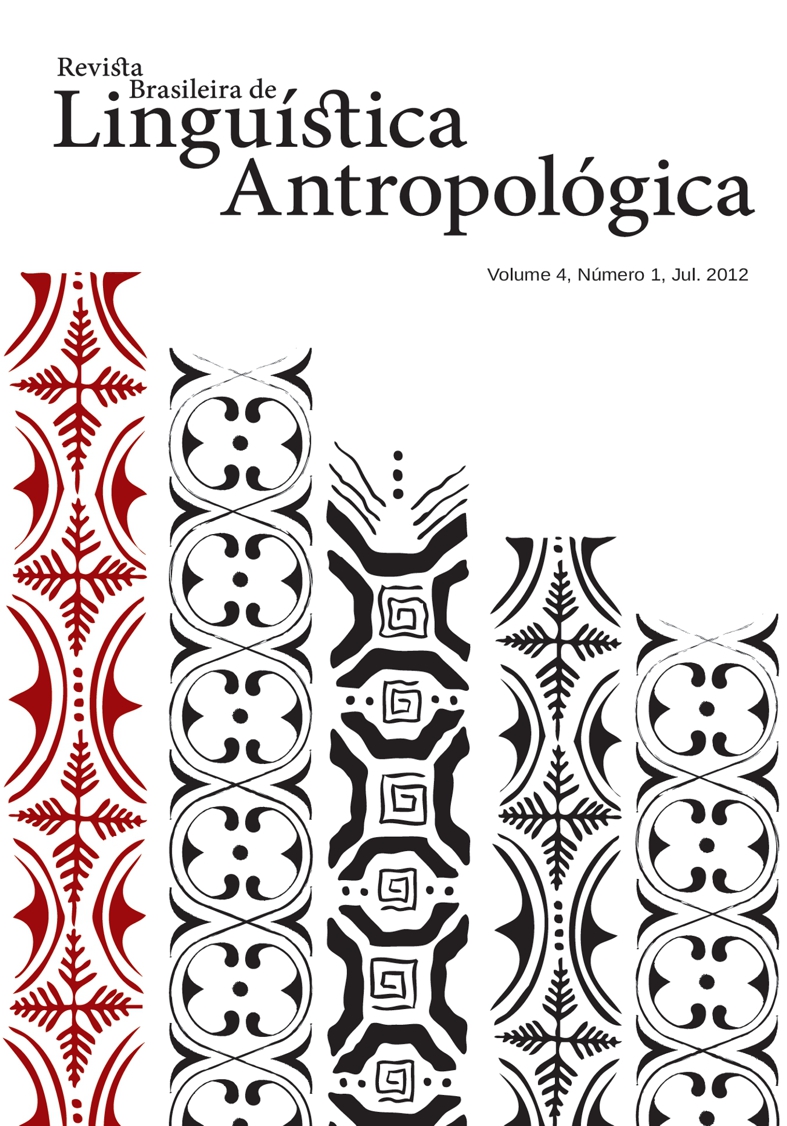A nasalização em Awetí
DOI:
https://doi.org/10.26512/rbla.v4i1.20666Keywords:
Nazalization. Morpho-phonological processes. Sound changes. Awetí. Tupian StockAbstract
This paper describes several synchronic processes of nasalization in Awetí, Tupian Stock, and puts forward six phonological rules, and their order of application, in order to describe the regular process of nasalization of the language. Some diachronic considerations are also presented, based on the comparison with some Tupí-Guaranian languages, and a couple of diachronic rules corresponding to the Proto-Awetí-Tupí-Guaraní are suggested.
Downloads
References
Barbosa, Pe. Lemos. 1967. Pequeno Vocabulário Tupi-Português, Rio de Janeiro: Livraria São José.
Emmerich, Charlotte e Ruth Monserrat. 1972. Sobre a Fonologia da Língua Awetí (Tupí). Boletim do Museu Nacional, Série Antropologia, n° 25. Rio de Janeiro: Museu Nacional.
Leite, Yonne de F. 1977. Aspectos da Fonologia e Morfofonologia Tapirapé. Série Linguística VIII, Museu Nacional, Rio de Janeiro: Museu Nacional.
Rodrigues, Aryon Dall’Igna. 1958. Phonologie der Tupinamba-Sprache. Tese de Doutoramento. Alemanha: Universidade de Hamburgo.
Soares, Marília L. C. Facó. 1977. A Perda da Nasalidade em Guajajára. Comunicação Oral apresentada durante a 29ª Reunião Anual da SBPC. São Paulo.
Downloads
Published
How to Cite
Issue
Section
License
Authors who publish in RBLA agree to the following terms:
a) Authors maintain the copyright and grant the journal the right of first publication, and the work is simultaneously licensed under the Creative Commons Attribution License, which allows the sharing of the work with recognition of the authorship of the work and initial publication in this journal.
b) Authors are authorized to assume additional contracts separately, for non-exclusive distribution of the version of the work published in this journal (eg, publish in an institutional repository or as a book chapter), with recognition of authorship and initial publication in this journal.
c) Authors are allowed and encouraged to publish their work online (eg, in institutional repositories or on their personal page) at any point before or during the editorial process, as this can generate productive changes, as well as increase impact and citation of the published work.







